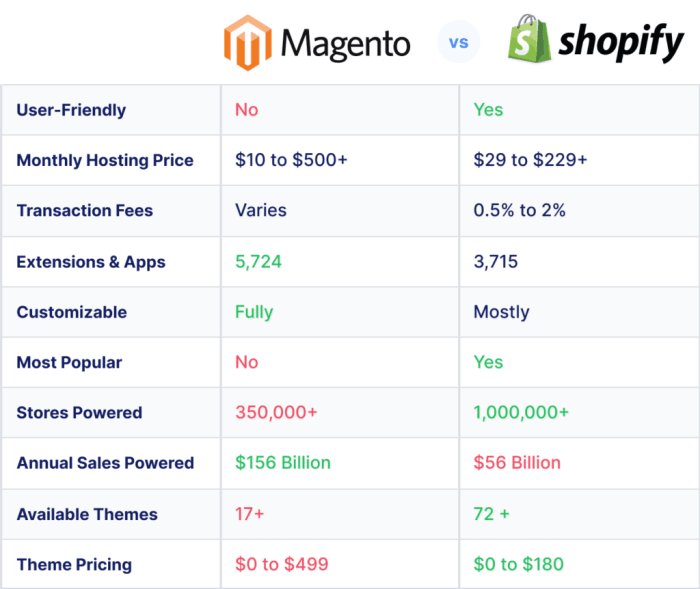Small Business Health Insurance Explained: A Guide for Startups
Embark on a journey through the realm of Small Business Health Insurance Explained: A Guide for Startups, where the intricacies of providing health coverage for fledgling businesses are unveiled.
Delve into the nuances of different insurance plans, cost-saving strategies, and legal obligations that shape the landscape of health insurance for startups.
Introduction to Small Business Health Insurance
Small business health insurance refers to a group health insurance plan that provides coverage to employees of small businesses. This type of insurance is essential for startups as it helps attract and retain top talent, improves employee morale, and demonstrates a commitment to the well-being of the workforce.
Benefits of Providing Health Insurance to Employees
- Improved employee retention and recruitment: Offering health insurance can attract top talent and reduce turnover rates.
- Enhanced employee well-being: Access to healthcare coverage ensures employees can seek timely medical care, leading to healthier and more productive team members.
- Tax advantages for the business: Small businesses may be eligible for tax credits when providing health insurance to employees.
- Competitive advantage: Providing health benefits can set a small business apart from competitors and help in building a positive employer brand.
Options for Small Businesses to Obtain Health Insurance Coverage
Small businesses have several options to obtain health insurance coverage for their employees:
- Group health insurance plans: These are traditional plans where the employer and employees share the cost of premiums.
- Health Savings Accounts (HSA): Employees can contribute pre-tax dollars to an HSA to cover medical expenses, paired with a high-deductible health plan.
- Health Reimbursement Arrangements (HRA): Employers fund HRAs to reimburse employees for medical expenses, providing flexibility in coverage.
- Association Health Plans: Small businesses can join associations to access group health insurance plans typically available to larger employers.
Types of Small Business Health Insurance Plans
Small businesses have several options when it comes to choosing health insurance plans for their employees. It is essential to understand the different types available to make an informed decision that meets the needs of both the business and its employees.
Group Health Insurance Plans vs. Individual Health Insurance Plans
Group health insurance plans are purchased by employers and cover all eligible employees, providing a range of benefits at a lower cost due to the group buying power. On the other hand, individual health insurance plans are purchased by individuals directly from insurance companies and can be more expensive compared to group plans since they are not subsidized by the employer.
Health Maintenance Organizations (HMOs)
HMOs require employees to choose a primary care physician (PCP) who coordinates their healthcare needs within a network of doctors and hospitals. Employees must get referrals from their PCP to see specialists. HMOs typically have lower premiums and out-of-pocket costs but limit the choice of healthcare providers.
Preferred Provider Organizations (PPOs)
PPOs offer more flexibility in choosing healthcare providers compared to HMOs. Employees can see any doctor or specialist without a referral, both inside and outside the network. While PPOs generally have higher premiums and out-of-pocket costs than HMOs, they provide greater freedom of choice.
High-Deductible Health Plans (HDHPs)
HDHPs have lower premiums but higher deductibles compared to traditional health insurance plans. Employees must pay a significant amount out-of-pocket before the insurance coverage kicks in. HDHPs are often paired with Health Savings Accounts (HSAs) or Health Reimbursement Arrangements (HRAs) to help employees cover the high deductibles and out-of-pocket costs.
Factors to Consider When Choosing a Health Insurance Plan

When selecting a health insurance plan for your small business, it is crucial to consider several key factors to ensure you make the right choice for your company and employees.
Size of the Business
The size of your business plays a significant role in determining the type of health insurance plan that is suitable. Larger businesses may have more bargaining power and options compared to small businesses.
Budget Constraints
Budget constraints are an essential factor to consider when choosing a health insurance plan. Small businesses need to find a balance between providing adequate coverage for employees while staying within their financial limits.
Employee Needs
Understanding the specific healthcare needs of your employees is vital. Consider factors such as age, health conditions, and family size to select a plan that meets the diverse needs of your workforce.
Coverage Options
It is important to evaluate the coverage options offered by different health insurance plans. Look for plans that provide comprehensive coverage for essential healthcare services, including preventive care, hospitalization, and prescription drugs
Network Size
Consider the size and quality of the healthcare provider network included in the health insurance plan. A larger network can offer more choices for healthcare providers, ensuring that employees have access to the care they need.
Provider Choices
Evaluate the provider choices available within the health insurance plan. Ensure that the plan includes a diverse range of healthcare providers, including primary care physicians, specialists, and hospitals, to meet the varied needs of your employees.
Cost Management Strategies for Small Business Health Insurance

When it comes to managing health insurance expenses for small businesses, there are several cost-saving strategies that can be implemented to ensure financial sustainability and employee well-being.
Health Savings Accounts (HSAs)
- HSAs allow employees to contribute pre-tax dollars to an account specifically designated for medical expenses.
- Employers can also make contributions to their employees' HSAs, providing an additional benefit.
- Unused funds in HSAs can be rolled over from year to year, making them a valuable long-term savings tool.
Wellness Programs
- Implementing wellness programs can help prevent costly health issues and promote a healthier workforce.
- These programs can include incentives for healthy behaviors, such as exercise challenges or smoking cessation programs.
- By investing in employee wellness, businesses can reduce healthcare costs in the long run.
Cost-Sharing Arrangements
- Offering high-deductible health insurance plans with lower premiums can be a cost-effective solution for both employers and employees.
- Employees share the cost of healthcare expenses up to a certain threshold before insurance coverage kicks in, encouraging them to be more mindful of healthcare spending.
- Cost-sharing arrangements can help small businesses save money while still providing essential health coverage to their employees.
Role of Insurance Brokers or Online Marketplaces
- Insurance brokers can help small businesses navigate the complex landscape of health insurance options and find the most affordable plans that meet their needs.
- Online marketplaces provide a convenient way to compare different health insurance plans and choose the best one for the business and its employees.
- By leveraging the expertise of insurance brokers or utilizing online marketplaces, small businesses can make informed decisions that help manage health insurance costs effectively.
Compliance and Legal Requirements

When it comes to offering health insurance as a small business, there are important legal obligations and compliance requirements that must be followed to ensure the well-being of employees and the company as a whole. Understanding these regulations is crucial for making informed decisions about health insurance offerings.
Affordable Care Act (ACA) Provisions
The Affordable Care Act (ACA) includes provisions that directly impact small businesses in terms of health insurance offerings. One key provision is the Employer Shared Responsibility Payment, which applies to businesses with 50 or more full-time employees who do not offer affordable health insurance that meets certain minimum requirements.
It's important for small business owners to be aware of these provisions and ensure compliance to avoid penalties.
Penalties and Consequences of Non-Compliance
Non-compliance with health insurance regulations can have serious consequences for small businesses. Penalties for failing to provide compliant health insurance coverage can result in financial costs and damage to the company's reputation. It's crucial for small business owners to understand the legal requirements and ensure that their health insurance offerings are in compliance with the law to avoid these negative consequences.
Last Recap
Concluding our exploration of Small Business Health Insurance Explained: A Guide for Startups, we've navigated the complexities of health coverage options, cost management, and legal requirements, equipping startups with the knowledge to make informed decisions.
Answers to Common Questions
What are the key benefits of providing health insurance to employees in a small business setting?
Providing health insurance can attract top talent, enhance employee retention, and promote a healthier workforce, ultimately boosting productivity and morale.
How does the size of a business impact the choice of health insurance plan?
The size of a business can influence the variety of plans available, with larger businesses often having more options due to economies of scale, while smaller businesses may need to focus on cost-effective solutions.
What are some cost-saving strategies small businesses can implement for managing health insurance expenses?
Small businesses can explore options like wellness programs, cost-sharing arrangements, or using health savings accounts (HSAs) to mitigate health insurance costs effectively.




